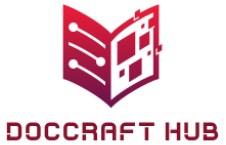In the ever-evolving digital landscape, the need for accurate and accessible document conversion has become paramount. However, proprietary software often comes at a premium, locking users into expensive subscriptions and limited functionality. This is where the power of open-source doc converter shines through. These free, community-driven solutions offer a compelling alternative, empowering users with flexibility, affordability, and a collaborative spirit.
Challenges of Converting Documents
The intricacies associated with document conversion create significant hurdles for individuals and organizations alike. Proprietary file formats, often designed to lock users into specific software ecosystems, pose a formidable challenge to seamless interoperability. Variations in document structure and formatting across applications can lead to loss of crucial data during the conversion process. These challenges intensify when dealing with complex documents, such as those containing multimedia elements, macros, or intricate styling.
Moreover, the fast-paced evolution of software applications results in frequent updates and changes to document formats, making it challenging to keep converters up-to-date with the latest standards. Compatibility issues can arise not only between different proprietary formats but also when transitioning from legacy systems to more contemporary solutions. This complexity necessitates a closer examination of open-source document converters, which, by nature, offer a transparent and collaborative approach to address these challenges effectively.
Familiarity with Open-Source Document Converters
Open-source document converters represent a paradigm shift in addressing the challenges posed by document conversion. Unlike their proprietary counterparts, these converters are developed collaboratively, allowing users to access, modify, and contribute to the source code. This open and transparent approach fosters a community-driven environment where developers worldwide can collectively enhance the functionality and performance of the converters.
Understanding open-source document converters requires familiarity with their architecture, features, and the principles that guide their development. Often, these converters are built on standardized document representation models, promoting compatibility across a wide range of file formats. The use of open standards ensures that the converters adhere to specifications that are openly available and not controlled by a single entity, further promoting interoperability.
By engaging with open-source converters, users can benefit from a level of customization that is often unavailable in proprietary solutions. This adaptability allows organizations to tailor the converters to meet specific requirements, ensuring optimal performance and adherence to internal standards. The collaborative nature of open-source development also results in a robust support system, where the community actively participates in issue resolution, updates, and feature enhancements.
In the following sections, we will explore the advantages of open-source document converters, shedding light on why they have become increasingly popular choices for individuals and organizations seeking efficient, flexible, and cost-effective solutions for document conversion.
Familiarity with Open-Source Document Converters
Open-source document converters represent a paradigm shift in addressing the challenges posed by document conversion. Unlike their proprietary counterparts, these converters are developed collaboratively, allowing users to access, modify, and contribute to the source code. This open and transparent approach fosters a community-driven environment where developers worldwide can collectively enhance the functionality and performance of the converters.
Understanding open-source document converters requires familiarity with their architecture, features, and the principles that guide their development.
- Open Architecture: Open-source converters often employ modular, open architectures that allow users to understand and customize their functionalities. This transparency facilitates troubleshooting, customization, and integration into existing workflows.
- Community Involvement: The collaborative nature of open-source development encourages a diverse community of developers, users, and contributors. This collective effort results in continuous improvement, bug fixes, and the introduction of new features based on real-world needs.
- Interoperability Standards: Many open-source converters adhere to widely accepted interoperability standards, ensuring compatibility with a broad spectrum of document formats. This adherence is crucial for seamless data exchange and collaboration in heterogeneous environments.
| Converter | Supported Formats | Features |
| Pandoc | Markdown, LaTeX, HTML, DOCX, and more | Universal document conversion tool |
| LibreOffice | ODT, DOCX, PDF, and many others | Comprehensive office suite with conversion capabilities |
| Calibre | EPUB, MOBI, PDF, and more | Primarily an e-book converter, versatile in document conversion |
| Unoconv | Supports formats handled by LibreOffice | Command-line utility using LibreOffice core |
Advantages of Open-Source Document Converters
Open-source document converters offer a range of advantages that make them attractive alternatives to proprietary solutions:
- Cost-Effectiveness: One of the primary benefits is the elimination of licensing fees. Open-source software is freely available, allowing organizations to allocate resources more efficiently and avoid budgetary constraints associated with proprietary solutions.
- Customization: Open-source converters provide a high degree of customization. Organizations can adapt the software to their specific needs, modifying the source code to meet unique requirements. This flexibility ensures that the converter aligns seamlessly with existing workflows and business processes.
- Community Support: The vibrant and diverse community surrounding open-source projects contributes significantly to their success. Users can tap into this collective expertise for troubleshooting, support, and updates. Community-driven development ensures a constant cycle of improvement, addressing issues promptly and incorporating valuable feedback.
- Interoperability: Open-source converters often support a wide array of document formats, including both proprietary and open standards. This broad compatibility promotes interoperability and reduces dependence on specific software vendors or file formats. This is particularly crucial in environments where diverse applications coexist.
As we delve into specific open-source document converters in the subsequent sections, we will further explore how these advantages manifest in practical terms and contribute to the success of these tools in addressing the challenges associated with document conversion.
Popular Open-Source Document Converters
Open-source document converters have gained popularity due to their versatility and community-driven development. Among the widely adopted tools, Pandoc stands out as a universal converter, seamlessly translating documents between various markup and word processing formats. Its flexibility makes it invaluable for users with diverse conversion needs.
LibreOffice, renowned as a comprehensive office suite, offers not only a full set of office applications but also robust document conversion capabilities. Supporting formats such as ODT, DOCX, PDF, and more, LibreOffice is a favored choice for those seeking an integrated solution for office tasks and conversion requirements.
Another notable converter is Calibre, originally designed for e-book conversion. Over time, Calibre has evolved into a versatile tool suitable for converting various document formats. Its user-friendly interface and extensive format support make it an excellent choice for individuals with a preference for simplicity and functionality.
Unoconv, operating through the LibreOffice core, is a command-line utility known for its efficiency in converting documents. While less user-friendly than some graphical interfaces, Unoconv excels in batch processing and automation, making it a preferred choice for users who prioritize command-line functionality.
| Converter | Supported Formats | Notable Features |
| Pandoc | Markdown, LaTeX, HTML, DOCX, and more | Universal converter for diverse markup and word processing formats |
| LibreOffice | ODT, DOCX, PDF, and many others | Comprehensive office suite with robust document conversion capabilities |
| Calibre | EPUB, MOBI, PDF, and more | Initially an e-book converter, evolved into a versatile document conversion tool |
| Unoconv | Formats handled by LibreOffice | Command-line utility for efficient document conversion using LibreOffice core |




